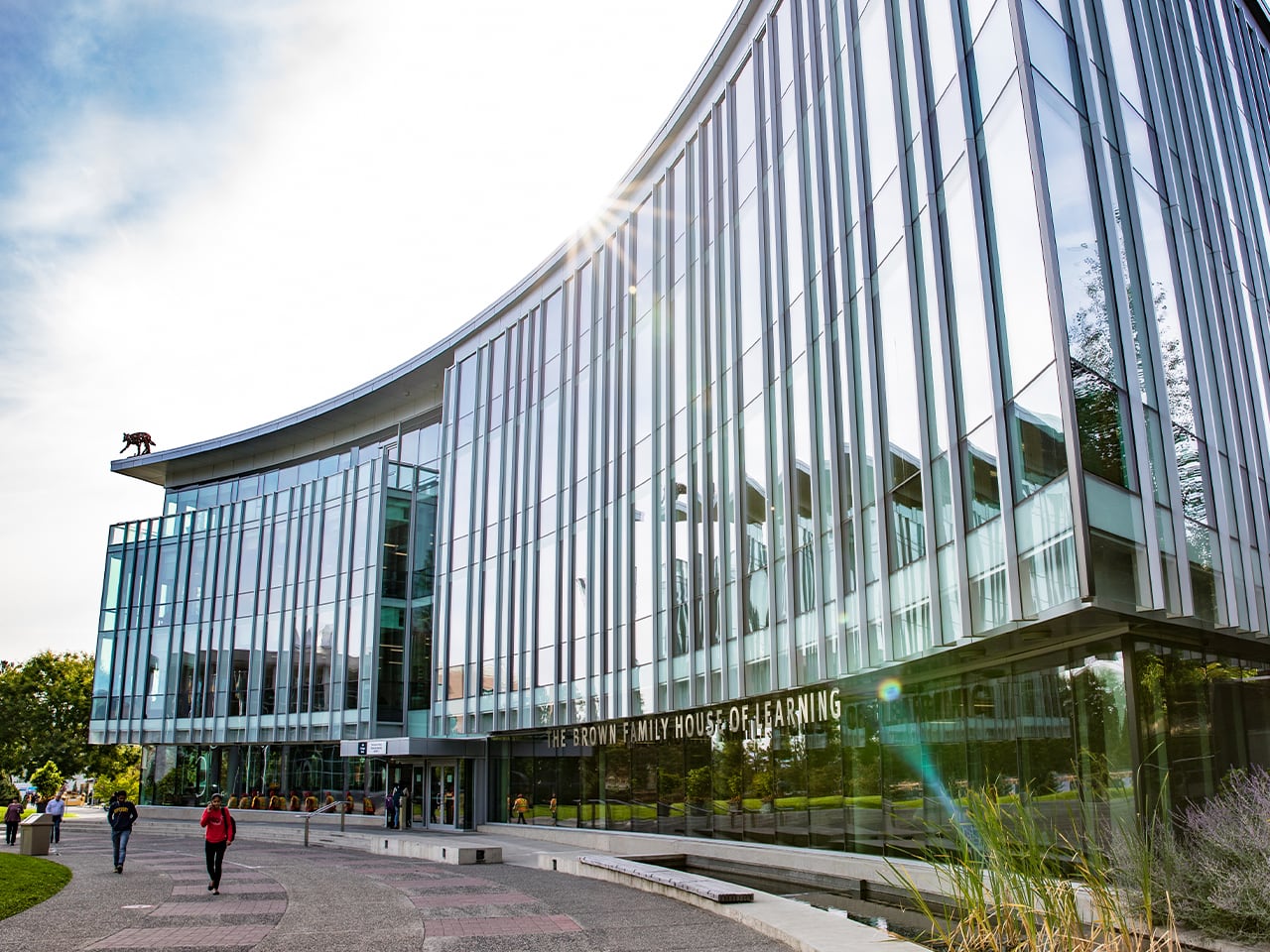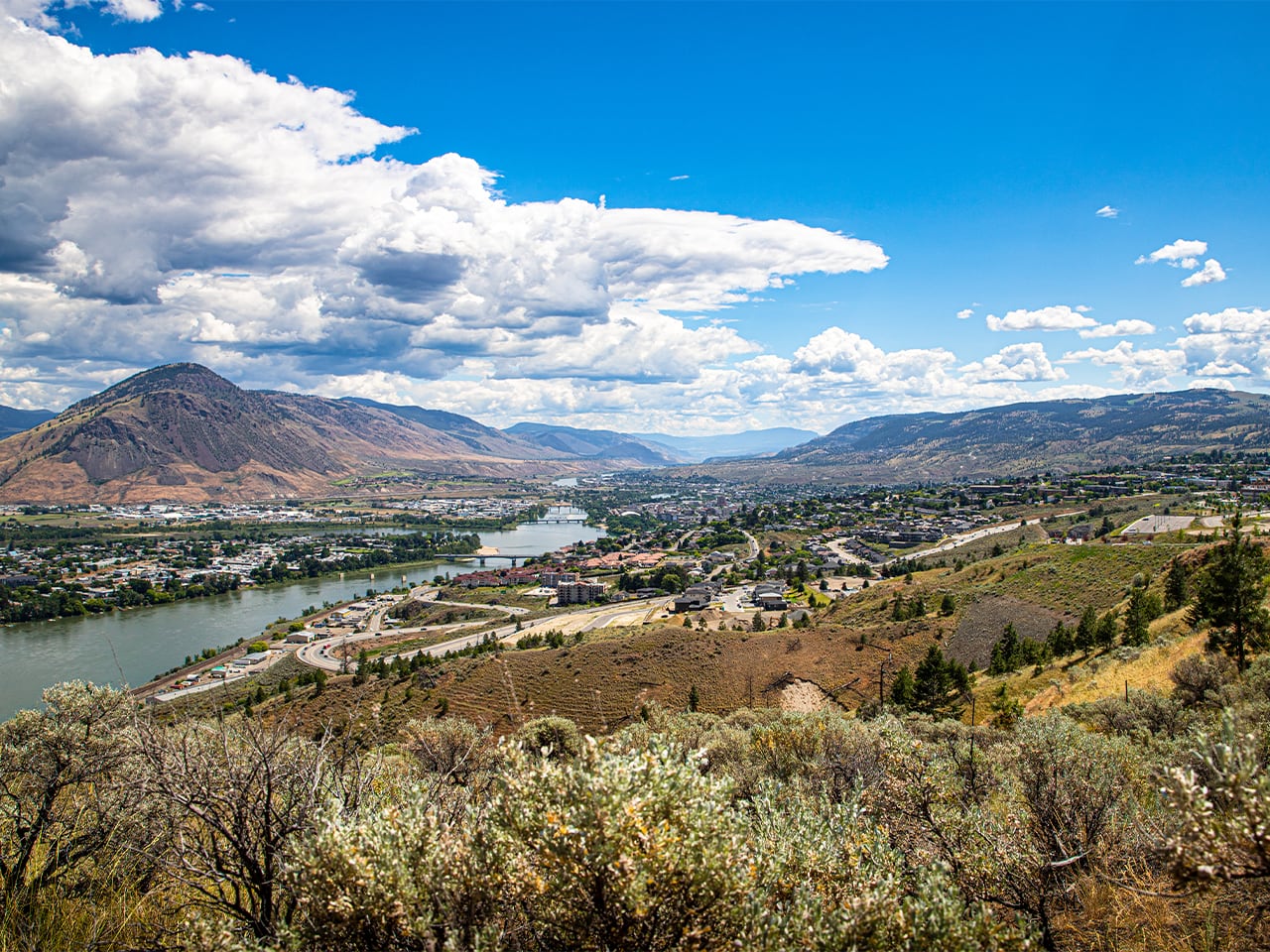Find your career in an exciting and ever-evolving field
The Bachelor of Natural Resource Science is a four-year program that offers a combination of on-campus study and fieldwork experience.
In this program, you will learn biology, chemistry, ecology, scientific methods and specific resource management in many hands-on courses. Outside of the classroom, you will gain field experience in areas including vegetation analysis, lake analysis, soil analysis and more. Co-operative education is an option for students to further their practical experience. In these full-time, paid opportunities you will have more opportunities to apply your learning in the classroom, enhance your resume and prepare for a career upon graduation.
Why pursue a Bachelor of Natural Resource Science degree through TRU?
- According to WorkBC, there is an estimated 1,180 job openings for managers in natural resources production and fishing from 2022 to 2032.
- The median annual salary is $112,310 for managers in the field.
- Completion of the BNRS degree fulfils the academic requirements of the BC Institute of Agrologists and College of Applied Biology.
- Fieldwork experience is a valuable component of the program, allowing you to take your learnings in the classroom out in the environment.

What will I learn?
The degree prepares you for various careers in the field.
A snapshot of what you will learn:
- Understand current issues within the management of natural resources by engaging with guest speakers, conducting lab experiments and partaking in field excursions.
- Grasp and learn how to integrate the ecological, cultural, economic, and social benefits of North American deciduous trees.
- Analyze the evidence and impacts of climate change and develop an understanding of observed changes in climate.
- Learn ArcGIS, the leading GIS software in the industry, to understand common geographic coordinate systems, common map projections, setting coordinate systems, visualization of geospatial data and more.
- Get experience in fisheries management, watershed management and fire ecology management.
How the program works
- Four-year program with the option to study part-time or full-time.
- Offered on the TRU Kamloops campus.
- Intake is in the fall, winter and summer semester.
What you need to complete the program
- Completion of 120 credits
- Course requirements
- Many of the courses offered by the natural resource science department include a field component. You will gain field experience in areas including vegetation analysis, forest stand measurements, lake analysis and vertebrate and invertebrate sampling techniques. Some of the areas you may visit include:
- Wells Grey Provincial Park
- Local ranches
- Fish hatcheries
- Active mining sites
- Forest research stations
What you need to get in
- Grade 12 or equivalent, or mature student status
- English Studies 12/ English First Peoples 12 with a minimum of 73% (B) or equivalent
- Pre-calculus 12 with a minimum of 67% (C+) or equivalent
- Life Sciences 11 with a minimum of 67% (C+) or equivalent
- Chemistry 11 with a minimum of 67% (C+) or equivalent
Students with Anatomy and Physiology 12 (or equivalent) and Chemistry 12 (or equivalent) will be given preference.
If you don’t meet the requirements
Apply and you may be eligible for admission through the Flexible Entry pathway.
This will allow you to complete your missing requirements while taking university courses in your program.
Where will this take me?
Prepare for a wide range of natural resource sector careers in industries such as forestry, logging, mining, oil and gas and commercial fishing. You will be ready to work in resource management and planning for government or industry.
When I considered programs, Natural Resource Science really stood out for me. Not only is the subject matter immersive and fascinating, but the professors went far beyond my expectations. My education here has provided me with an abundance of relevant work and research experience, all of which was instrumental in my acceptance of what I am sure will be a very rewarding career in forestry and natural resource management.
Adam Soames, Bachelor of Natural Resource Centre graduate
Program Details
- Credential
- Bachelor of Natural Resource Science
- Delivery
- Kamloops
- Length
- Four years
- Intake dates
- September, January, May
- Applications
- Now accepting applications
- International
- Open to international applicants



